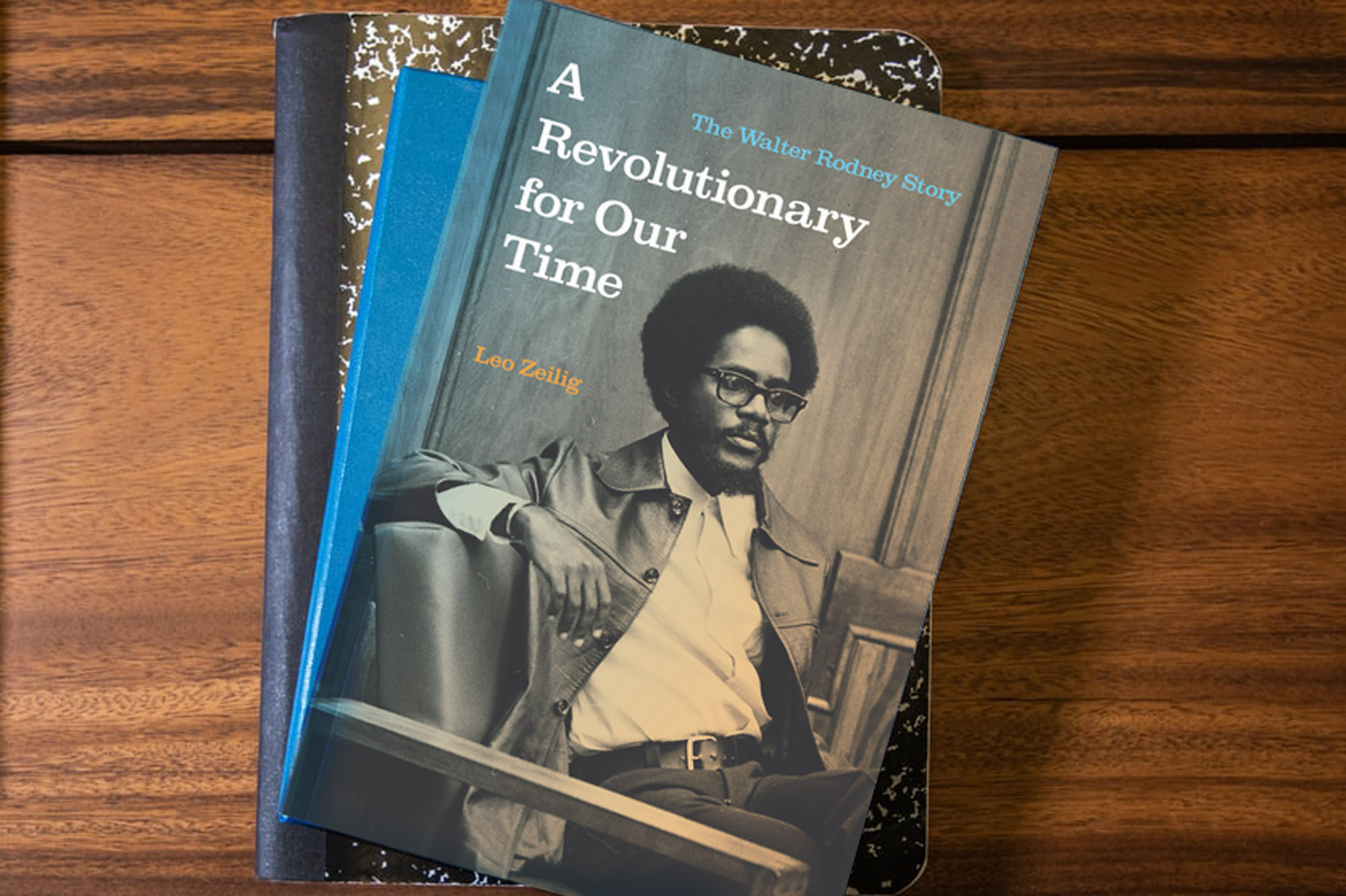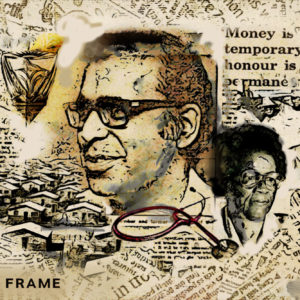New Books | The Walter Rodney Story
The Guyanese historian and activist sought revolutionary change through an informed and grounded practice, offering education and focusing on the total ecology of society.
Author:
4 April 2022

This is a lightly edited set of excerpts from A Revolutionary for Our Time: The Walter Rodney Story (Haymarket Books, 2022) by Leo Zeilig.
Walter Rodney’s life contains so many lessons, and presents us with such invaluable teachings. Throughout his life, from his early activism, Rodney knew there could be no change that was lasting or desirable that did not come through the action and mobilisations of the poor themselves. This continued, grew and developed, when Rodney worked and led the Working People’s Alliance in Guyana after 1974, as he sought an empowerment of the poor and working class for themselves, by their own hand and in their own name. Celebrating two anniversaries this year, of his birth 80 years ago and the publication of his masterwork, How Europe Underdeveloped Africa, there is so much that needs to be said.
Rodney paid particular attention to the role of the environment and ecology in his 1972 masterwork, How Europe Underdeveloped Africa – showing how many African societies, prior to the arrival of Europeans, had demonstrated a keen awareness of what he describes as the “total ecology” of society. This was, in his words, the “soils, climate, animals, plants and their multiple interrelationships”. When the colonialist invaded, catastrophe followed – for human beings and the environment. A form of agriculture that had sustained complex societies and cultures for centuries was based on a keen understanding of soil potential, yet, in Rodney’s words, “when the colonialists started upsetting the thin topsoil, the result was disastrous”.
Indeed, Rodney had a keen and historical sense of the complex interrelationship between human society, production and the environment. For him, this “total ecology” was vital to sustaining human life and protecting nature. Predating the era of the climate emergency, Rodney’s work remains remarkably prescient on this dimension.
Related article:
These ideas and this interest in colonialism, empire, capitalism and environmental destruction continued. In a lecture Rodney gave in 1978 (Walter Rodney – Crisis in the Periphery: Africa and the Caribbean) he turned his attention again to the environment, and the revelations that Egypt’s president, Anwar el-Sadat, had recently been in France and Austria negotiating the export of their nuclear waste to Egypt. Rodney explained: “We know, those of us who are familiar with the pattern of life in this society, that capitalism in its drive for profit maximisation has been totally oblivious of the effects on the environment. We know that capitalism has been killing the environment in the process of expanding capital. But the alienation which this has produced in the capitalist countries has at least sparked off the ecological movements, and now there is some resistance to the wanton development.”
The pandemic has been driven by an economic system programmed to accumulate ceaselessly, no matter the consequences: after all, capitalism regards the natural environment as a product that can be bought and sold, and the increasing proliferation of viruses is intimately connected to food production and the profit margins of international businesses.
The background to this catastrophe, Rodney spoke and wrote about, with more clarity, purpose and force than anyone else. As Naomi Klein has written, people stolen from Africa was a practice of ruthless expropriation that was so breathtakingly profitable that they produced the capital and power that set off our age of fossil-fuel-led industrial revolution, human-driven climate change and capitalist development. It was the roots and branches of this system – the total system – that Rodney sought to understand and transform throughout his life.
Rodney was a Marxist for our time; a man who spent his life on political education, aware that it was only through careful and painstaking study that capitalism could be known and ultimately overthrown; his historical work, and his 1972 classic, has to be understood in this way.
Related article:
Armed with this knowledge, he threw himself into efforts to change the world in Tanzania, Jamaica, and then, most remarkably, in his home of Guyana after 1974. He was a principal figure in an extraordinary period: moving through the Caribbean, Africa and North America, he achieved a daring and exciting synthesis of Black power and Marxism.
Today, the global uprising of the Black Lives Matter movement that exploded across the world in the summer of 2020 has challenged the deep roots of vicious oppression and exploitation, and it calls for us to return to Rodney’s work and life for insights and answers. A world in which the monuments to the US Confederacy, UK slave owners, and settler colonialism are crashing down at the hands of protesters would be familiar to Rodney. Yet it was the system behind these statues, and crimes, that was his ultimate target. Indeed, Rodney not only analysed the historical roots of slavery and colonialism but also saw how capitalism had mutated and developed in the modern world.
In Africa, Europe, the United States, and beyond, there can be no final reckoning with these legacies without a challenge to the global financial institutions and governments that remain in place. The profits of today’s rich still drip with the blood and sweat of slavery and colonialism. Rodney analysed the behaviour of this class in detail, and, in the 1970s, Rodney became one of the most brilliant proponents of self-emancipation, elevating the activism of the working class and poor to the heart of any serious project of revolution.
Related article:
Rodney’s work demonstrates the breadth and depth of his reading; in his approach to research, every primary source had to be read, and he refused a hand-me-down approach to scholarship. To change this history, Rodney told us, we must do certain things. We must read and understand the history that has been silenced by academic and establishment historians – a key task. Indeed, much of Rodney’s life was spent “explaining”, teaching from the bottom up – literally, whether from an oil drum in Kingston’s Trench Town, to students at the University of Dar es Salaam, or to workers and the poor across Guyana in the 1970s. Wherever he went, he talked, lectured and taught. If there is ever a single purpose in any life, this was it for Rodney: education. In his books and speeches, he educated, to the highest and most exacting standards.
But he did not do this purely for the sake of enlightenment; Rodney was a teacher who sought revolutionary change that he knew could only come from informed and grounded practice.
Walter Rodney was a revolutionary socialist who understood, as he wrote in 1972, that the only great people “among the unfree and the oppressed are those who struggle to destroy the oppressor”. This is what he taught.
A Revolutionary For Our Time has been written in the context of the Black Lives Matter movement, responding to that movement’s desire for theory, history and practice. It is hoped that a full account of Rodney’s life will help illuminate our struggles to forge a new society. Understanding Rodney’s work and life is indispensable to this vital, life-deciding project.



